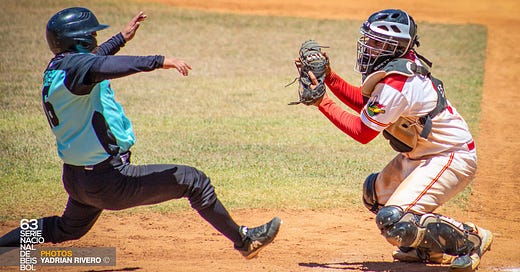Hey, I've been waiting to write this reference and tell you a story in my next Cuba National Series column, but I really can't wait. While I'm telling you what happened, I wanted to know how many times you've seen a triple play at the ballpark.
Now I can remember some of the ones I've seen over my years, first as a fan and then covering baseball.
The firs…



